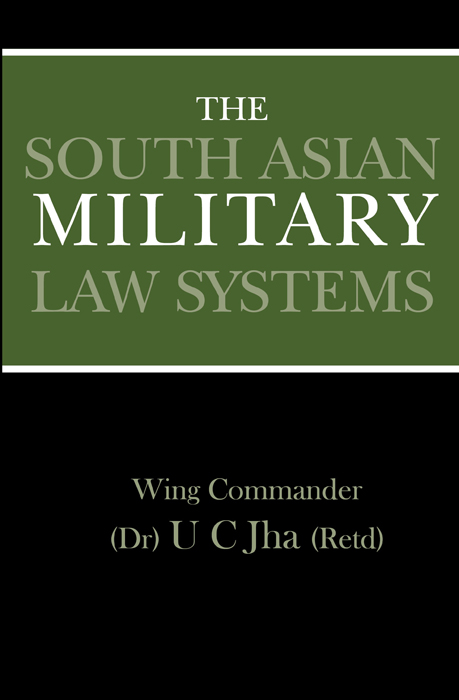Subjects
The South Asian Military Law Systems
U C Jha
This book is a comparative study of the military law systems of the five South Asian countries: Bangladesh, India, Nepal, Pakistan and Sri Lanka. It also considers those aspects of international human rights laws and international humanitarian laws which are relevant to the activities of the armed forces, while they are deployed in the armed conflicts, in the peacekeeping missions or when they are in barracks.
Using famous cases to illustrate legal points, this book examines minor punishments, describes step-by-step court martial process, and offers an overview of the constitutional and statutory rights available to armed forces personnel in South Asia. The author recommends that the armed forces personnel must not be subjected to cruel and degrading punishments under the military laws; and certain groups, for example women combatants must not be vulnerable to discrimination. It also critically examines special emergency laws under which armed forces are deployed in the internal security duties in South Asia.
The author is of the view that respect for human rights and fundamental freedoms for all, including armed forces personnel, is not just a moral obligation. It is part of international human rights law, and the South Asian countries are obliged to respect and protect the rights of personnel serving in their armed forces.
This is a timely study in South Asia, in the light of allegations of human rights violations against the armed forces personnel. It will have broad appeal for scholars in human rights, international humanitarian law, the military studies and anyone concerned with the policy studies in the armed forces.


 Political Science
Political Science

